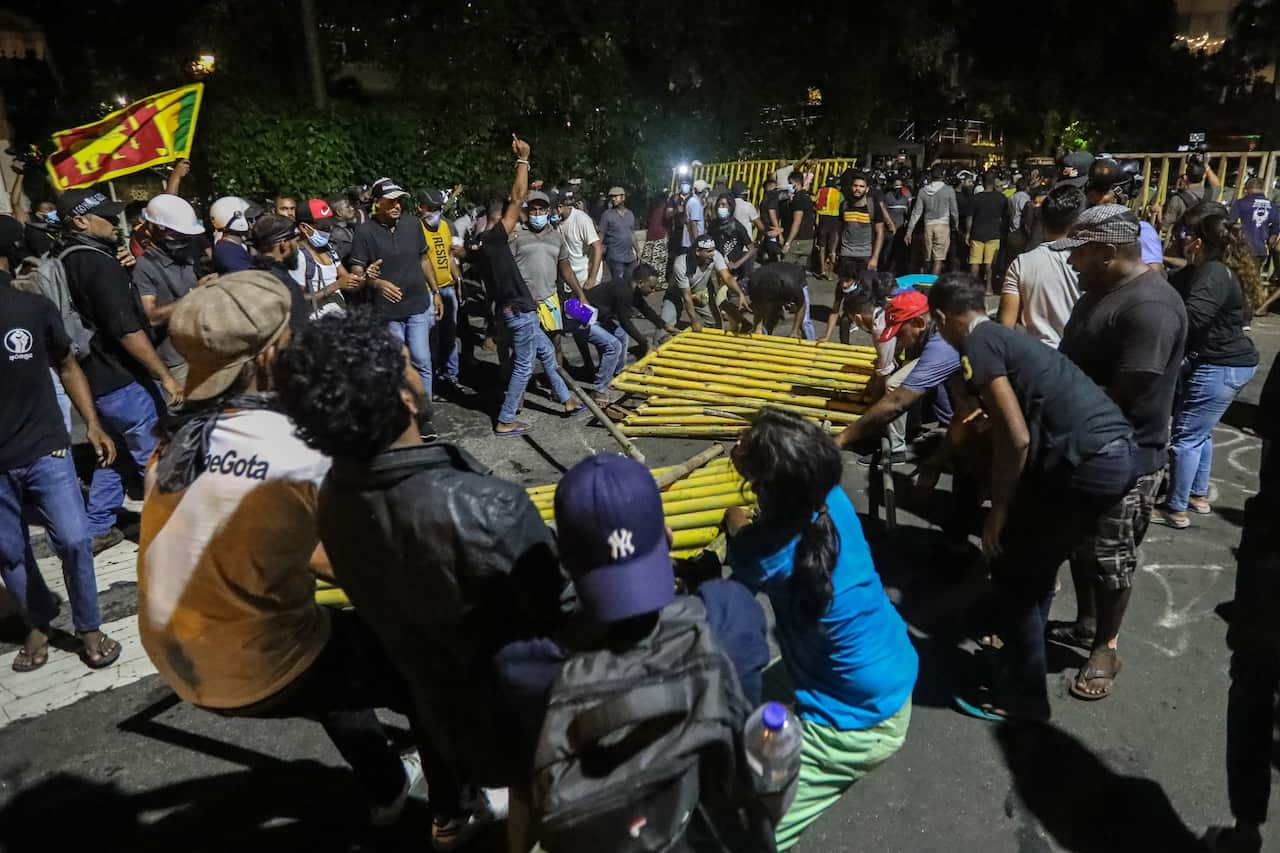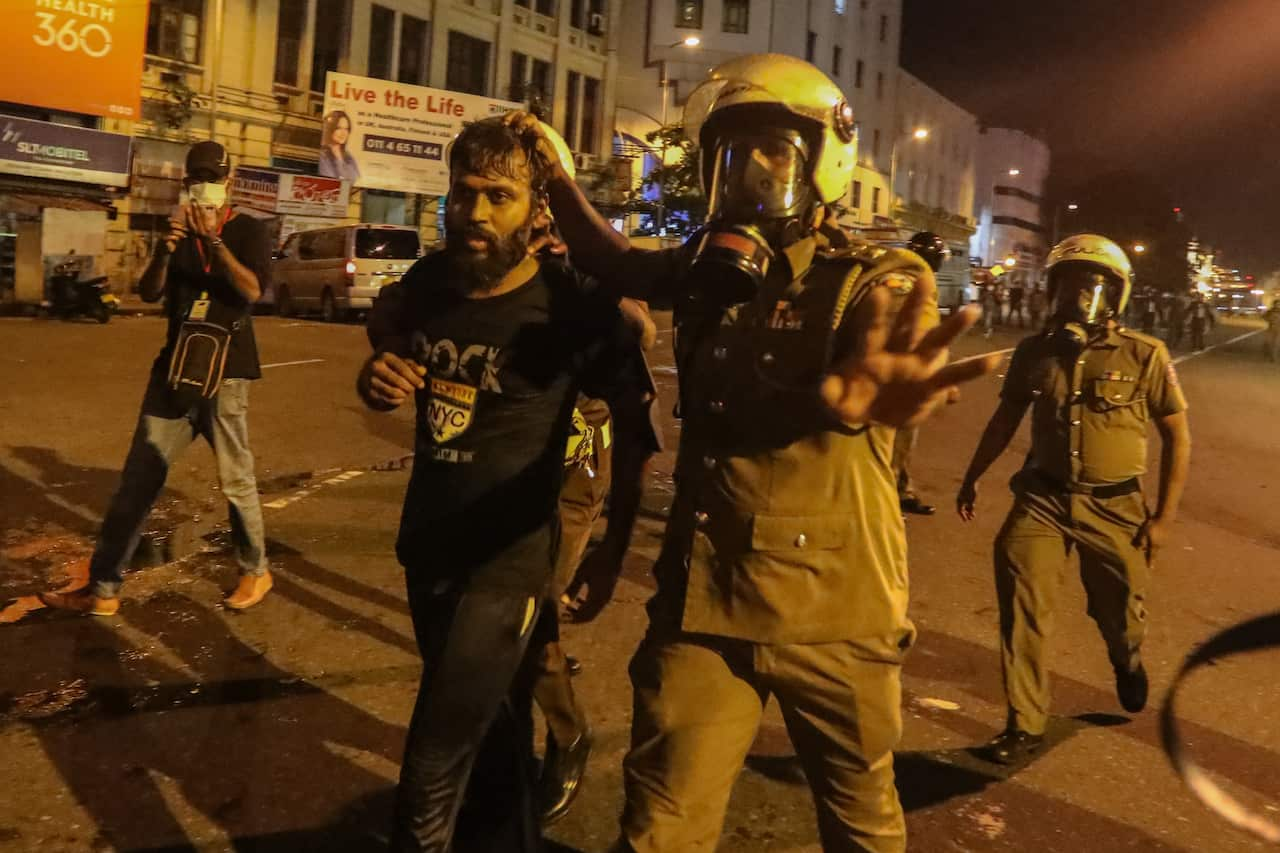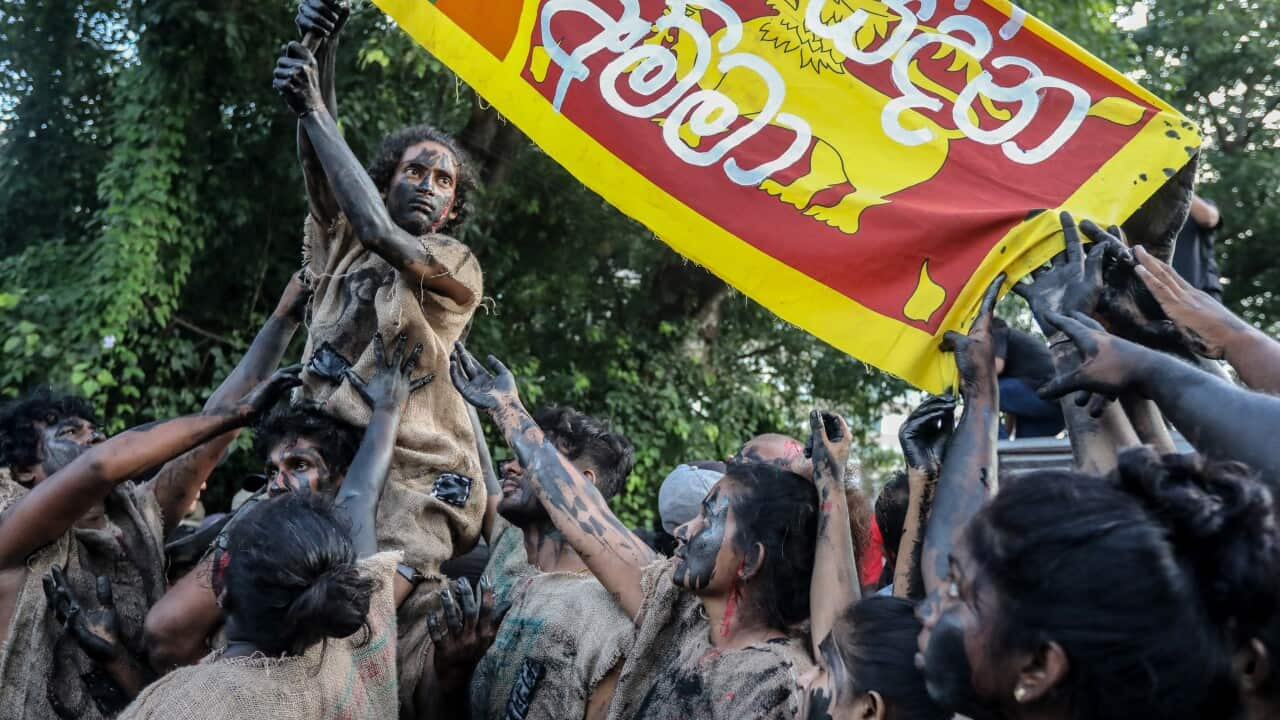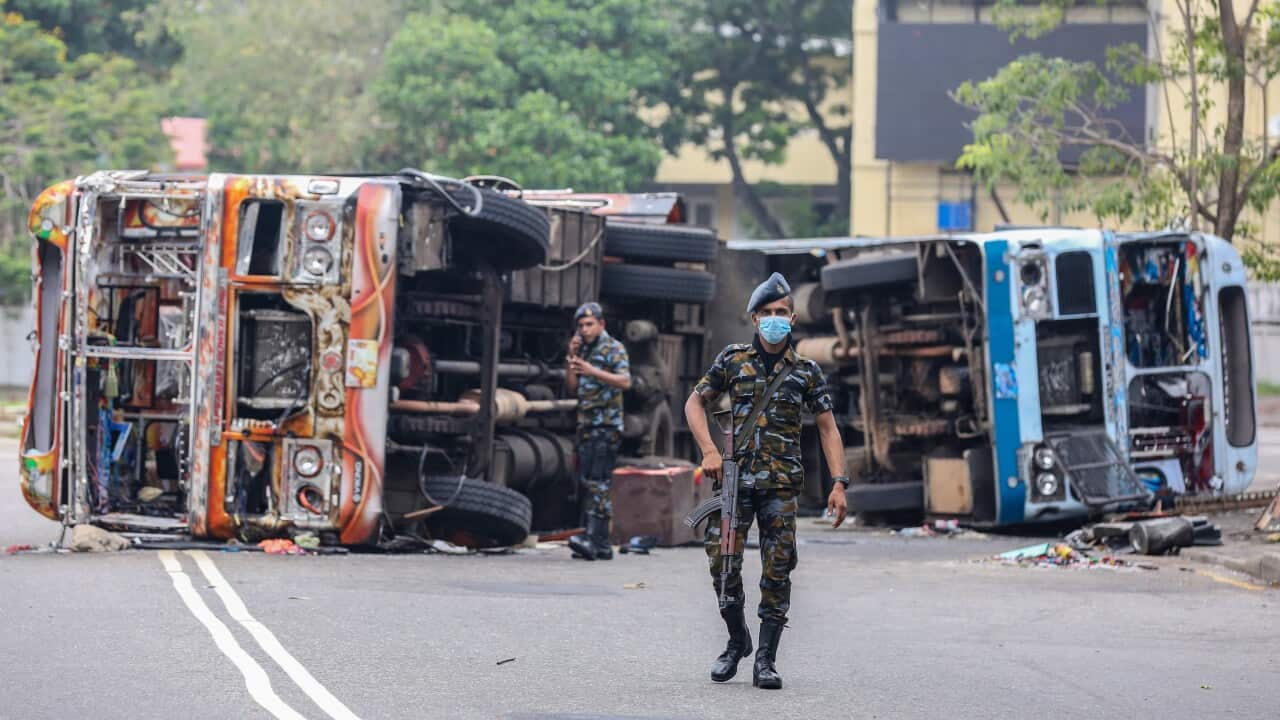Key Points
- The South Asian island nation has suffered months of dire shortages and anti-government protests
- Importers are unable to finance vital food, fuel and medicines
Cash-strapped Sri Lanka took delivery Saturday of Russian oil - which could soon be subject to a European embargo - to restart operations at the country's only refinery, the energy minister said.
The island nation is suffering its worst economic meltdown since independence, with shortages of fuel and other essentials making life miserable for its 22 million people.
The state-run Ceylon Petroleum Corporation (CPC) refinery was shuttered in March following Sri Lanka's foreign exchange crunch, which left the government unable to finance imports, including crude.
The Russian crude delivery had been waiting offshore of the capital Colombo's port for over a month as the country was unable to raise $75 million (A$104.73 million) to pay for it, energy minister Kanchana Wijesekera said.

Anti-government protesters clash with security forces during a protest near the President's house in Colombo, Sri Lanka, on 28 May 2022. Source: AAP / EPA
"I have made an official request to the Russian ambassador for direct supplies of Russian oil," Mr Wijesekera told reporters in Colombo.
"Crude alone will not fulfil our requirement, we need other refined (petroleum) products as well."
European Union leaders are meeting on Monday in an effort to negotiate a fresh round of sanctions against Russia over the Ukraine conflict, including an oil embargo.
Russian oil is already subject to a US embargo and its barrels have traded at a steep discount from international benchmarks, which have risen substantially since the conflict began.
Protest milestone
Sri Lanka's economic crisis has seen long queues of motorists outside gas stations, waiting hours and sometimes even days for scant supplies of petrol and cooking gas.
Its people are also grappling with a serious lack of imported food and pharmaceuticals, along with record inflation and lengthy daily blackouts.
Prime Minister Ranil Wickremesinghe was on Wednesday given the additional responsibility of running the finance ministry as the island nation grapples with its worst-ever economic crisis.
Mr Wickremesinghe, 73, was sworn in as finance minister after two weeks of wrangling among coalition partners for the crucial position ahead of bailout talks with the International Monetary Fund.
His appointment was delayed by a dispute between Mr Wickremesinghe and the Sri Lanka Podujana Peramuna (SLPP) party of President Gotabaya Rajapaksa over who would take the post.
"The president's party had wanted the finance portfolio, but the PM insisted he wanted it if he is to lead the country out of the economic chaos," a top politician involved in the negotiations told AFP, on condition of anonymity.
Mr Wickremesinghe is expected to soon unveil a revised budget promising relief for poorer Sri Lankans suffering through record inflation and spiralling food prices.
Staff-level talks with the IMF concluded on Tuesday, but it is expected to take six more months for the Washington-based lender to agree on a bailout package, central bank officials said.
Sri Lanka has already defaulted on its $51 billion foreign debt and appointed international consultants on Tuesday to help restructure its international sovereign bonds and other bilateral loans.
The government has effectively ended subsidies on fuel by raising prices to a record high on Tuesday, and Mr Wickremesinghe's administration is expected to hike electricity and water tariffs to raise much-needed revenue.
Petrol and diesel both remain in short supply and motorists are forced to queue, sometimes for days, to fill up.
Anti-government protests erupted into riots earlier this month, leaving nine people dead and many more wounded.

Police detain protesters during an anti-government protest near the President's house in Colombo, Sri Lanka, on 28 May 2022. Source: AAP / EPA
Meanwhile, thousands of activists led by university students marched through the streets of Colombo and clashed with police guarding access roads to Mr Rajapaksa's official residence.
Police fired tear gas and water cannon to disperse the protesters who pulled down yellow-painted iron barricades.
Two people were briefly detained by police and later released, according to witnesses.
There were no reports of serious casualties, but ambulances were seen ferrying some people affected by tear gas.
Share



